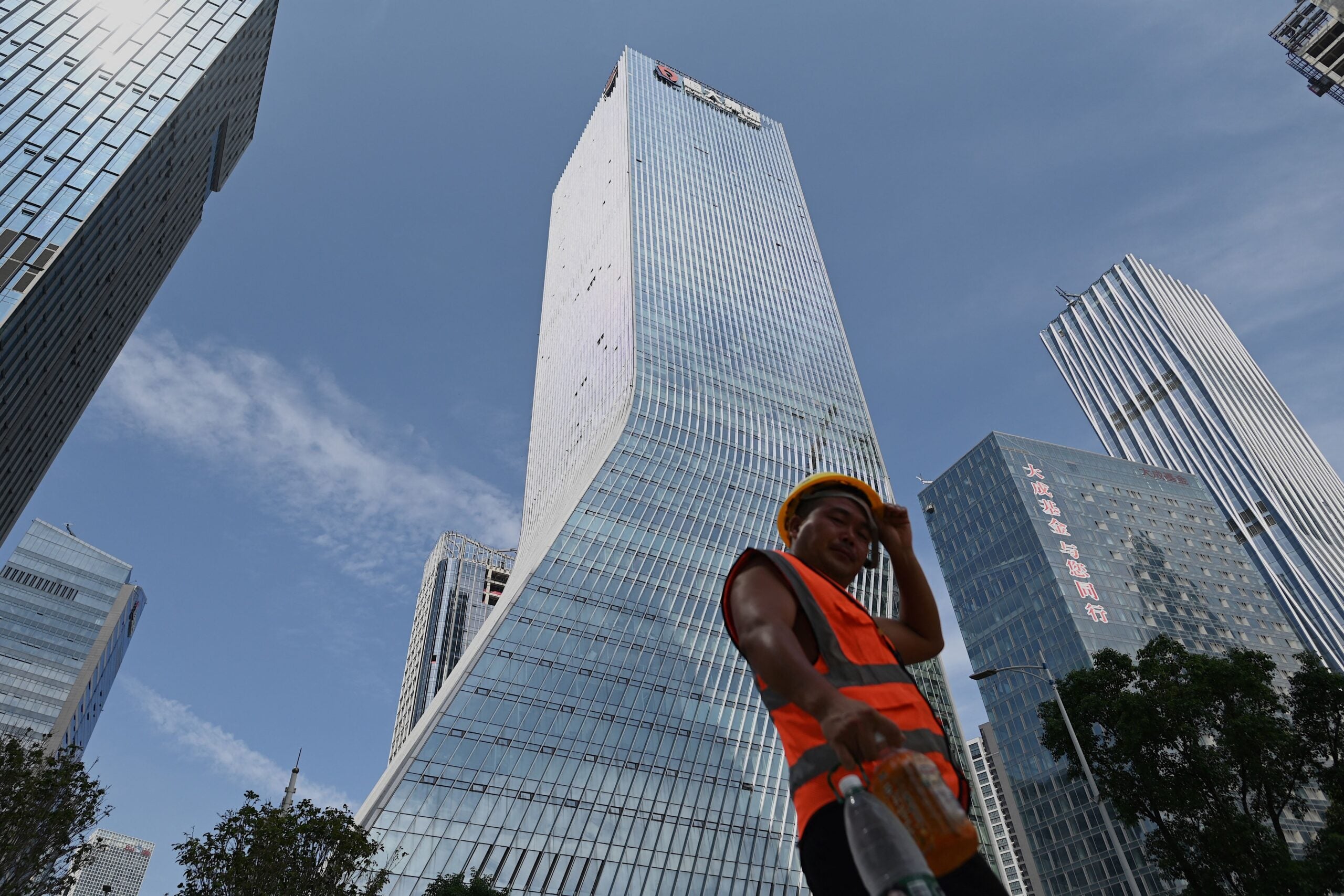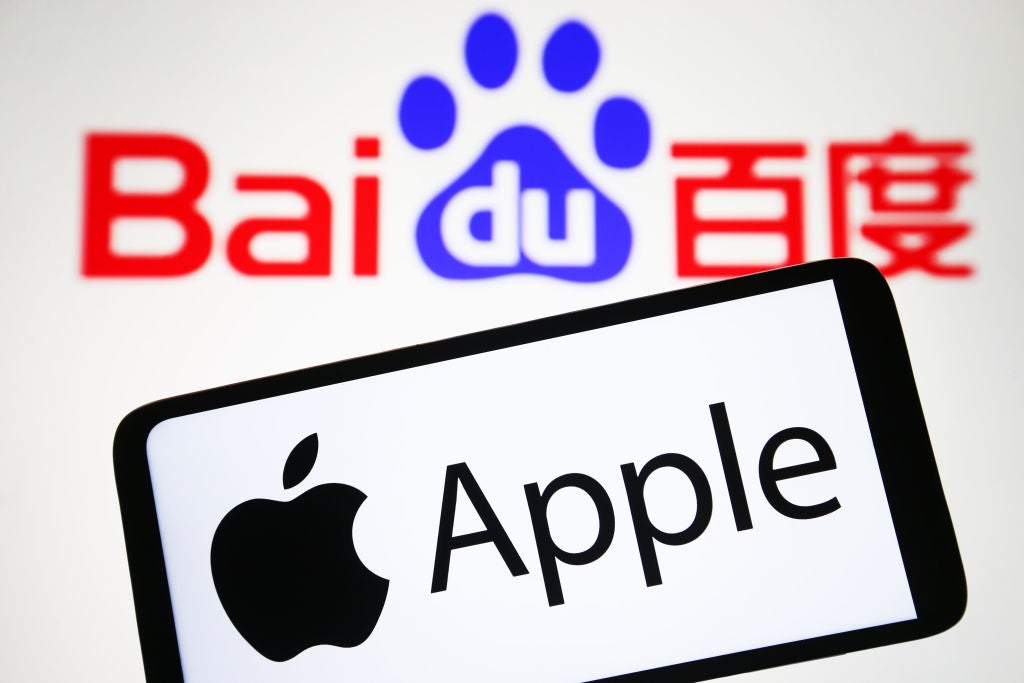
Chinese netizens have reportedly said that mentions of the debt-ridden real estate conglomerate Evergrande were blocked on the country’s most popular social media app WeChat. Chinese officials are concerned about the rising public outrage caused by Evergrande, as the company continues to fail to meet its debt payments.
Eight users in at least eight separate groups, each counting around 200 to 500 members, said that they were blocked from sending messages regarding Evergrande’s crisis from Tuesday morning, Reuters reported.
Following the news of the real estate company’s mounting debt crisis, angry homebuyers organised protests in several cities, most of which were organised through WeChat. Many also joined groups to voice their grievances and discuss their options.
Earlier this month, footage of angry homebuyers laying siege on the company’s headquarters in Shenzhen went viral on various social media platforms.
On Wednesday, two WeChat users reported seeing the error message “limits have been placed on this group because it violates relevant rules and regulations,” as confirmed by Reuters.
Several other users said the groups had been deleted from their WeChat accounts. Yet others lamented that they could not access their groups.
How well do you really know your competitors?
Access the most comprehensive Company Profiles on the market, powered by GlobalData. Save hours of research. Gain competitive edge.

Thank you!
Your download email will arrive shortly
Not ready to buy yet? Download a free sample
We are confident about the unique quality of our Company Profiles. However, we want you to make the most beneficial decision for your business, so we offer a free sample that you can download by submitting the below form
By GlobalDataAccording to the Reuters report, two people who had been members of some of the groups said that they were visited by Chinese law enforcement on Sunday and asked to sign papers pledging not to join any gatherings or do anything illegal.
Just two weeks ago, the Tencent-owned super app was urged to open up its platform to rival links, following a new government mandate.
Now, WeChat is allegedly blocking content related to Evergrande’s crisis. This is likely as government officials are concerned about unrest and organised protests caused by angry shareholders.
Financial analysts have pointed out that Evergrande’s crisis is a major test for Beijing as China’s real estate bubble continues to grow. Some fear it could even become China’s Lehman Brothers moment, sending shockwaves across the world’s second-largest economy.
Last week, Evergrande sent investors on a roller coaster ride as the firm met one crucial debt deadline that saw shares shoot up one day but then failed to address another deadline which sent shares down again the next.
Its upcoming moves will be crucial. So far, the real estate goliath has failed to address two offshore interest payments on bonds within a week. Nevertheless, on Thursday, the cash-strapped company made a partial payment to some of its domestic investors.
The bigger they are, the harder they fall
Earlier this year, China’s largest real estate company disclosed that it was struggling to sell assets fast enough to service its 1.97tn yuan (US$305bn) debt, saying that its cash flow was under “tremendous pressure”.
Evergrande’s liabilities equal 2% of China’s GDP, which has sparked fears that its default would send significant shockwaves through the financial system, not only in China but around the world. Worries though have eased somewhat after the central bank vowed it would protect homebuyers’ interests.
The company is listed on the Hong Kong Stock Exchange and has its headquarters in the southern Chinese city of Shenzhen. Founded by Chinese billionaire Xu Jiayin, known in Cantonese as Hui Ka Yan, Evergrande made a name for itself, boasting that it owned “more than 1,300 projects in more than 280 cities” across China.
Xu’s ambitions far exceed the world of real estate. He has also invested in electric vehicles, theme parks, sports clubs and other sectors. Evergrande even has its own food and beverages business, selling bottled water, groceries, dairy products and other goods across Chinese supermarkets.
In 2010, the business mogul famously bought a football team, which cost the company US$185m. The company recently broke ground on the world’s largest football stadium, with construction set to complete next year. The US$1.7bn site, shaped in the form of a giant lotus flower, will eventually be able to seat 100,000 spectators.
Evergrande’s lavish spending habits is emblematic of China’s debt-related economy, experts say. Last year, a series of Chinese state-owned companies defaulted on their loans, highlighting the risks of China’s reliance on debt-fuelled investments to promote economic growth.
Nevertheless, there are speculations that this time things will be different. Recently, the Chinese government has made it clear that the era of free play among big businesses has come to an end, notably with the regulatory crackdown on Big Tech.
A Beijing-backed bailout of Evergrande can therefore not be taken for granted.







